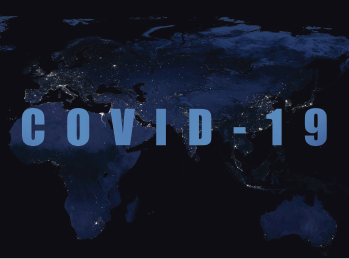
© Viacheslav Lopatin / shutterstock.com
“What we’re trying to do is spark nerve regeneration and recreate the correct synaptic pathway back to the olfactory cortex so aberrant pathways don’t form,” said Dr. Patel, noting that abnormal nerve signals can cause parosmia and phantosmia. Randomized controlled trials have found that olfactory training is effective in treating viral-associated olfactory loss, and that over-the-counter essential odors can be used in lieu of controlled concentrations of odorants (Int Forum Allergy Rhinol. 2020;10:814-820; Laryngoscope Investig Otolaryngol. 2017;2:53-56).
Explore This Issue
January 2021Although olfactory training can be initiated at any time—including years after loss of smell—earlier intervention typically leads to better outcomes. “I’d love it if I could see everyone a week after they got COVID-19,” Dr. Patel said. “The sooner we intervene, the larger the percentage of patients who’ll do well.” However, additional research is needed to demonstrate the effectiveness of early intervention in COVID-19 patients, Dr. Tabaee said.
Dr. Patel complements olfactory training with budesonide nasal irrigation, as a randomized controlled trial of 133 patients found that budesonide plus olfactory training may improve outcomes (Int Forum Allergy Rhinol. 2018;8:977-981). (Nearly 44% of patients who received combination treatment noted improvement, compared to 27% of the control group, who underwent olfactory training and saline irrigations). Another randomized controlled trial showed that omega-3 supplementation may improve olfactory function in patients suffering from smell dysfunction after endoscopic skull base surgery, so Dr. Patel tells her COVID-19 patients that they may want to consider omega-3 as well.
“It’s a complete extrapolation to use it to treat post-viral olfactory loss, but because the underlying basic science is sound, I do tell my patients about it, with the caveat that the evidence supporting its use is in a different patient group,” Dr. Patel said.
Persistent Shortness of Breath
Although it seems reasonable to assume that post-COVID shortness of breath and cough are likely due to pulmonary injury, recent research and experience suggest that isn’t always the case. Beginning in July 2020, Dr. Aviv and his colleagues noticed that they were seeing patients who had likely had COVID-19 in the spring and were still experiencing disruptive shortness of breath during conversations, despite normal chest X-rays and lung CTs. The only apparent abnormality, from a pulmonary perspective, was a flattened inspiratory flow loop on spirometry. Otolaryngologist examination of the larynx revealed paradoxical vocal fold movement disorder, a treatable condition that can be caused by inflammation of the vagus nerve and has been previously noted after upper respiratory infection (Int J Respir Pulm Med. 2020;4:0073-0074; Ann Otol Rhinol Laryngol. 2009;118:247-252).
Patients who experience persistent shortness of breath after COVID-19 should be referred to an otolaryngologist if no pulmonary abnormalities are noted. “The key question to ask patients is, ‘Does your shortness of breath or cough wake you up at night?’” Dr. Aviv said. “If the answer is no, it’s almost always vagal.” If a laryngoscopy reveals paradoxical motion of the vocal cords during breathing, initiating respiratory retraining and a low-acid diet may ease patient symptoms. All 18 patients of the initial cohort treated by Dr. Aviv and his colleagues experienced resolution of shortness of breath with treatment (Int J Pulm & Res Sci. 2020;4:0073-0074).